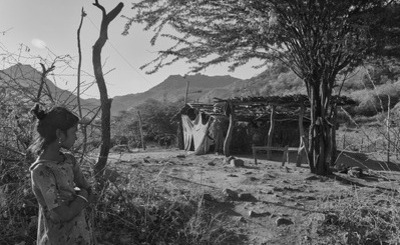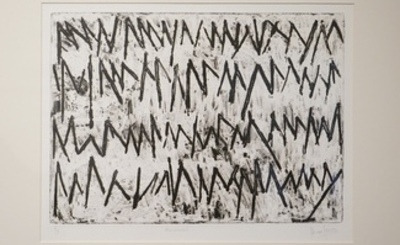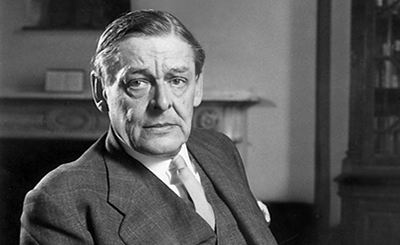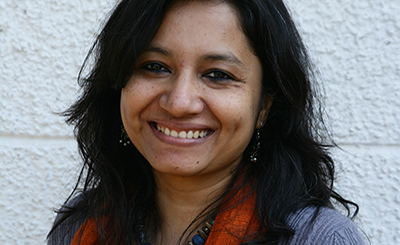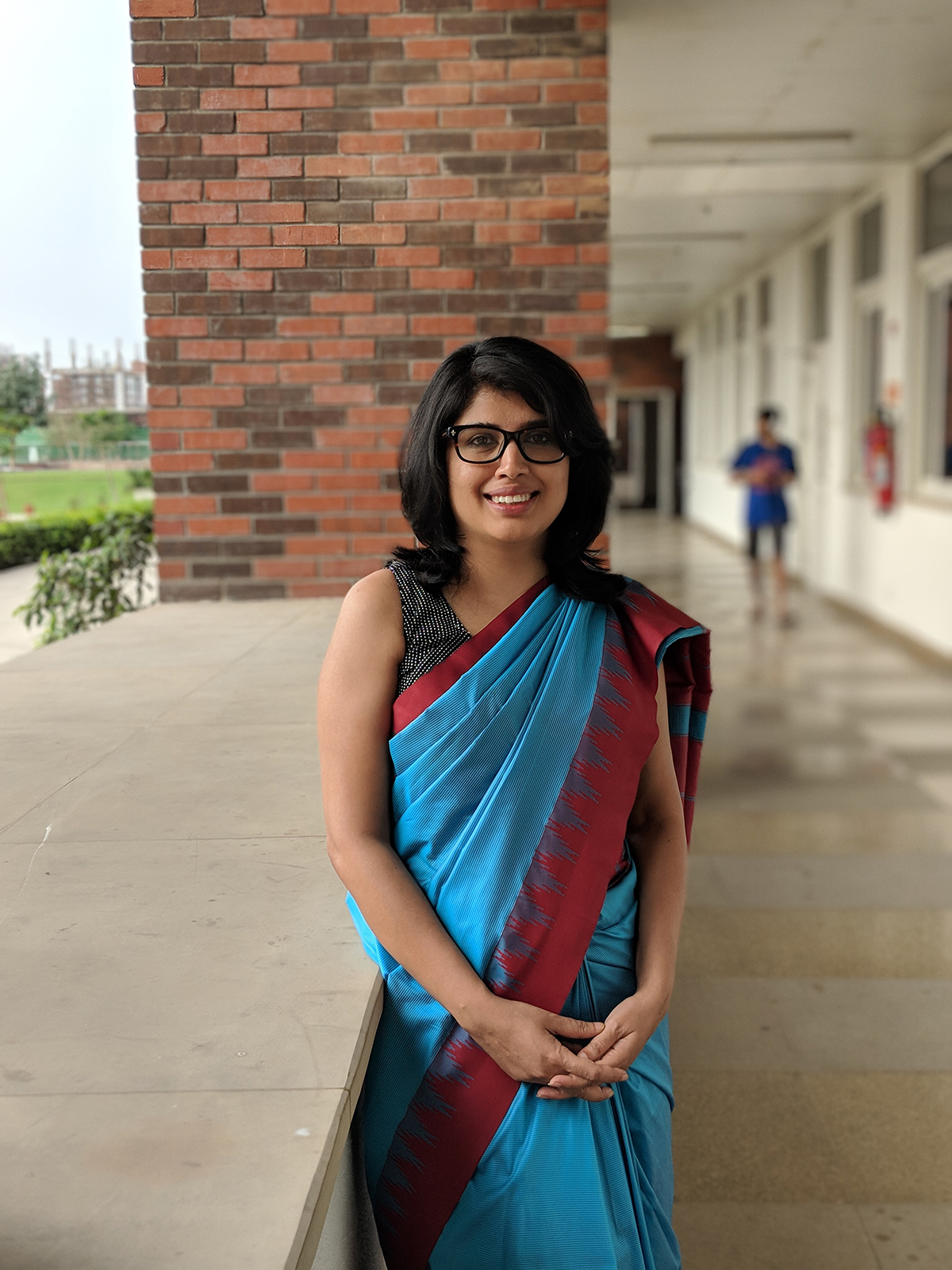
Sumana Roy. Photo: Tanita Abraham
In Missing, her first novel, set in Siliguri over seven days, seeing and blindness, marriage and poetry are metaphors, says Sumana Roy. ‘I wanted to look at the speed of news, its artificiality, and how that speed has been smuggled into the generic novel – that’s not the speed at which we live our lives,’ she says
Sumana Roy’s debut novel, Missing (Aleph), set in Siliguri over seven days in the summer of 2012, is a searing meditation on modern marriage and a critique of the diminishing sanctity of the written word. Kobita, the 54-year-old activist wife of Nayan, a blind poet, travels to Guwahati to rescue a young girl who has been molested in full public glare, with journalists taking her photographs and making videos of the incident, but none coming forward to help her. As Nayan copes with the seven agonising days that his wife remains incommunicado, a clutch of people — Bimal da, the inimitable carpenter, who is energised by an awareness of being richer in years than people around him, Ahmed, his assistant, Tushi Saha, Bimal da’s 19-year-old granddaughter who is hired to read newspapers to Nayan over the seven days — give him company, but the absence leaves more than just a trail of dissonance in their lives: “She had lived more inside him than she had in the world. For her to be away was like his self being on leave.”
Nayan is a poet, “a poet of the home”, a “relative of Homer and Valmiki”, both of whom were blind. Roy, who tells her story with tremendous finesse and in a remarkably assured voice, takes a leaf from the Ramayana — “If a man left his wife to discover the world or to make a home elsewhere, it seemed the most natural thing to do. There were no epics worrying about the man. But think of Sita, Helen or even Mirabai, all three sundered from their familiar surroundings, captured, taken or just grown indifferent to old relationships — this was somehow a fit subject for the epic.” It is to Roy’s credit that she turns this leaf into a tree, with its branches full of great asides that reflect a life invested in literature and ideas. “Mira holay mara jaabey,” she’d die if she became Mirabai — these are Bimal da’s words of wisdom about the woman travelling alone. “The wandering man, minstrel, saint, scholar, researcher, yogi, king, warrior, Ulysses — all these travellers were men, all imbued with wisdom. The wandering woman was a madwoman. Penelope must always be home.”
As Bimal da and company help Nayan to trace his wife after her phone calls stop coming, the couple’s son, Kabir, is in England, deep into his research about Hill Cart Road, the highway that connects Siliguri to Darjeeling and the Eastern Himalayas. The novel, which shuttles between Nayan’s desperation and Kabir’s exasperation, interjected with news reports of happenings around the globe, takes us deep into the lives of these people and the town. In Kobita’s absence, we get to know the kind of person she was. We get to know, for instance, that she was an embodiment of perfection. But “perfection was attractive from a distance — as in god, for instance — but to have to live with a holy book was a pain.” Through Kabir’s train of thoughts, we know: “That was his mother’s fault, and fault it was — she was bad because she was so good.”
At some point in the novel, Kobita is remembered for saying this: “All night I dreamt that all the news in the newspapers was lies.” Nayan, the poet, wakes up once with a sense of all the poems in the world actually being newspaper reports. “Part-invention. Part-fact.”
In this interview, Roy talks about the genesis of the novel. Roy says that in the novel, she aimed to "reject the speed of news". One of the greatest joys of writing, she says, is to discover streets that we did not know existed in the map of our being. “I’m not interested in the idea of the novel as a means of acquiring information. I think of the novel as an experience — just as I do not go to a piece of music to gain information, I come to the novel or to poetry to live in a moment of heightened beauty and self-awareness and an awareness of the world that information cannot — and does not — give us,” says Roy. Excerpts from the interview:
Shireen Quadri: Missing is a quietly assured reflection on modern marriages and relationships. Tell us about the genesis of this novel.
Sumana Roy: I began writing Missing in July 2012, as the events reported in the novel were happening. The writer Aruni Kashyap was sending me texts that his friends were caught up somewhere in Alipurduar and in other places between Siliguri and Guwahati – the rail service had stopped. Around this time – in fact, at exactly the same time – a bed was being made in our house. I’d always been fascinated by Bimal-da – by his kirtans, and by his independence. He didn’t belong to the contemporary world. He was also not an anachronism. He was like Time – in the sense that Time makes everything age but itself doesn’t age. He was someone who’d seen Siliguri change in a way very few had. It was also he who brought in news of how his relatives were moving from lower Assam to his house and to Siliguri to escape the riot-like situation there. I found a strong dissonance between what he and Ahmed and my friends were telling me and what the newspapers were reporting. It was actually the first time that I realised that news had turned to fiction. It was this that I wanted to capture — the difference between life and news, its artificiality, and more than everything else, its speed. Bimal-da, Ahmed, Ratan, Shibu, Bani — they are people with whom I have real relationships. I am moved by their humour and enthusiasm for life, all of which I find missing in news reports. I wanted to hold these two contrapuntal worlds together on the same page.
It was also a difficult time in my life, emotionally. I was thinking of disappearance all the time (I still do, I suppose). How I Became a Tree (Aleph, 2017), my first book, a work of non-fiction as you know, Shireen, came from that space — about the desire for transformation, an escape from the human life to plant life.
Missing comes from the same emotional space, I think. What would happen if I disappeared or went missing from this life, of these people I am surrounded by? It struck me that the Ramayana was actually constructed around this: what happens to not just a man but his people when his wife disappears? In that moment of equivalence, Bimal-da and Ahmed became Hanuman-like figures in my eyes, Nayan’s vanar sena as it were. It also struck me that these were subaltern figures, not human but animals — that those who help us, whether as household staff or as employees in some form, are never treated as equals. There’s a slight tendency to sub-humanise them as Rama’s helpers, Hanuman and the army of monkeys, were in the Ramayana. And yet, the idea of the family is changing in front of our eyes. Not blood but time spent with each other, whether forced by economic and employment situations, is increasingly determining those we love and trust. I wanted to write about this invisible family, too. There is either a tendency to glorify them for their ‘service’ or a propensity to think of them as ‘stupid’, people whose thoughts are somehow less important or less legitimate than ours, because we consider ourselves educated. I was interested in reminding us about how joyous and intelligent and funny their conversations are, particularly when contrasted with the grimness of news reports, that exclude everything that is endearing about life. Sugriva wasn’t any less intelligent than Rama — Bimal-da isn’t any less intelligent than Nayan. He’s certainly funnier.
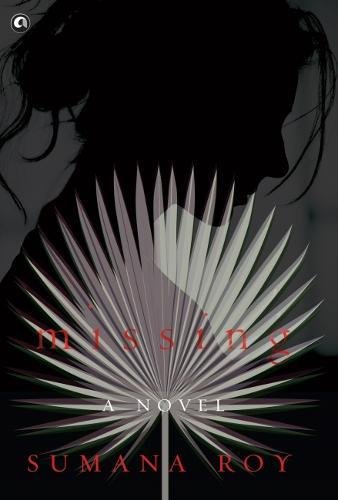
Shireen Quadri: The novel is also a reflection on how news is presented and received these days. The belief in the written word — boi ey aachey, it’s in the books — Nayan’s once default answer to Kabir’s questions, symbolises their belief in the book, as religious as the Christian’s in the Scriptures. That belief, however, changes in a different time and age when “it was impossible to believe in the printed word any more (even ‘seeing is believing’ had been rendered redundant by television). Everything was gossip, all newspapers tabloids, but such was the poverty of the people that they lived their lives and judged the lives of others with this hand-me-down morality.” As Kabita said, “Hardly anything that is published in the newspapers these days is true.” Were you interested in exploring this aspect as well?
Sumana Roy: Yes, I was. I also never tire of saying that I was also trying to reject the speed of news. It was in 2012 when I personally encountered fake news. You’ll see that Tushi makes up news and even we are not sure by the end whether the news report that comes at the end is true or not. There is a tendency to think of the producer of ‘fake news’ as an other, someone morally inferior than us. I think we’re also producers — and consumers, of course — of fake news. April Fool is a celebration of such an action, for instance. The relation between truth and fiction has been central to the novelist, right from the beginning of the novel as it were. Take Robinson Crusoe, the first English novel — Defoe constructed it out of a news item and its popularity owed to it being read as ‘truth’. Most of the conversations between Bimal-da, Ahmed, Ratan, Shibu and others are not my invention — I’m actually reporting what I heard from eavesdropping on their hilarious conversations. Compared to that I thought the news items were a piece of fiction, as most news today is. So something has happened in our times — the novel moving towards auto-fiction, the novelist relying only on the material of his life, perhaps because that is the only truth he knows, is an important marker of our distance from two things: the unreliability of news, and the fake constructedness of the plot, in which the novelist is increasingly seen to be as complicit as the reporter of fake news.
The concept of the holy book is tautology. We have taken it as a given that the book by itself — any book — is holy. In Bengal, for instance, if our feet touch a piece of paper, we would immediately touch it to the forehead because it’s considered sacred. Any book is considered sacred. Anything that did not come to us via the book, we could reject. Where is that sanctity now? Books, newspapers, the television or radio — it’s ‘fake news’ everywhere. The reversal of this sanctity is like a metaphor in Missing, in that the written is being turned into the oral by Tushi’s reading from a newspaper for the blind poet.
Shireen Quadri: Tell us more about the conceits of Nayan as the blind poet. Did you follow the template of poets like Homer and others who were blind? Was it difficult to write about blindness?
Sumana Roy: It came to me that Homer, Milton and Dhritarashtra — who’s, of course, not a poet — were all blind. There’s also the mythicisation of Valmiki’s blindness. The central conceit was how blind poets had become national poets — The Iliad, Paradise Lost, the Ramayana are, in many senses, national epics and also epics of communities unified by religion. I found it interesting to imagine that a blind poet was writing from Siliguri, which is the gateway to the Northeast. There’s a vulnerability about the region, both political and emotional, both backed by the shape of the landmass and the inhabitants of those parts, that makes one feel that they could break off from the map of India any moment. A blind poet is writing from the locus of such a possible breaking point as it were, a poet writing not from the centre of power. What could his story be like? Can his story — and his poems, which must remain invisible to us as the world remains to him — be an epic? A national epic? Why not? The disappearance of Kobita — his wife, whose name means ‘poetry’ in Bangla — becomes a metaphor for the disappearance of the poetic from our lives. It might also make us question the whole idea of the nation and the national epic, particularly today — the idea of the national epic must also change, shouldn’t it?
Let me tell you about my apprehensions about writing about blindness. I was talking about this with Clancy Martin, a philosopher and novelist, who was teaching at Ashoka University last semester. He told me that he was facing a problem about situating the character of Medea in the contemporary context, particularly against the background of the debates in America today — how was he, as a privileged white male to write about a woman in a novel? I thought it was time we reminded ourselves of what Keats called negative capability — that writers were capable of imagination and a point of entry into various kinds of experiences that they might not have experienced empirically, and in that we were like actors: do we accuse an actor for not having played the part of a murderer well because he has no experience of being a murderer? One of the greatest joys of writing is to discover these experiences, these streets that we did not know existed in the map of our being. Yes, it is true that I do not know how it feels to be physically blind, but I will also never know how it feels to have an erection. Nayan, the blind poet in Missing, experiences an erection. Also, Kobita, his wife, is fifty four years old. I do not know how it feels to be fifty four. This is the power of the imagination, I think, and it is also wise to remember that there isn’t only one kind of experience that marks an age or a kind of disability. Are we to deny a male writer the right to write about dysmennorhea or adults from writing about children, because isn’t it true that most of us have forgotten what it meant to experience the world as a child?
I taught in Darjeeling for about four years — one of my colleagues suffered from near-blindness. I also taught someone who was visually challenged. I wasn’t observing them for research for a future book any more than one looks at the sky for research, but so much of it seeps inside us. Also, seeing and blindness, marriage and poetry — they are all metaphors in Missing.
Shireen Quadri: The novel is also a reflection on the perception of women, how they are considered to be lesser beings. Was this strand also at the back of your mind?
Sumana Roy: It hinged on the fact that men were able to get away, go and explore things without the family being central to their consciousness. Columbus went to discover America. The imagination fails to conjure a female Columbus. She’d have never reached America even if she’d managed to get away from home — wouldn’t she have been raped or suffered some kind of harassment? When a woman manages to escape this social world for exploring another life of possibility, intellectual, emotional or spiritual, she is immediately turned into a quasi-saintly figure, as in the case of Mirabai.
Think of the two novels written by Daniel Defoe — Robinson Crusoe and Moll Flanders. In Robinson Crusoe, he allows the man to explore this life of leaving his family and eventually, though of course it comes in the guise of an accident, a life of solitude. Then there’s Moll Flanders who is shown to almost make a career out of seducing men, marrying them, leaving them for money and so on. Right from the early beginnings of the novel, the male imagination has decided that the woman who leaves the house has to be a “fallen” woman. Even the idea of home and the world is a very limited — and, of course, limiting — category for the woman. For the man, these categories don’t exist.
In Missing, for instance, Bimal-da says that Lakshman drew that rekha for a reason. That it was also a show of affection. That is what our parents have told us: “Come back by 6 o’ clock because we care for you”. That there is no curfew times for males seems like a naturalised given. The woman is thus not just limited in terms of space but time as well. As if only daylight is for the woman. The night is not for her. This has been in my head for a long time. I have a younger brother and I saw this gender dynamic play out at home.
Also, there are these thumris about Radha who has to make excuses — even fool — her family so as to be able to go and see Krishna. Krishna, not because he’s god, but because he’s a man, doesn’t have to do any such thing. Why this suspicion about a woman leaving the house? I wanted to explore that too, I think.
Shireen Quadri: The novel also stands out for its pacing and sense of time, a resonance from your first book, How I Became A Tree. Tell us more about the idea of time in the novel.
Sumana Roy: I wanted to investigate the idea of time in the novel. Aditi Sriram, who teaches at Ashoka University, pointed out that she loved the idea of tree-time in How I Became a Tree and liked the fact that the book was written to tree-time and she kept thinking of that while reading Missing, which is paced from moment to moment, as poetry most often is. That is something I wanted to do in this novel. Also, I wanted to look at the speed of news, its artificiality, and how that speed has gradually been smuggled into the generic novel – that's not the speed at which we live our lives.
It’s a book about seven days in the life of a family. I wondered whether it was possible to read the novel over seven days, reading a chapter a day. That was also one of the things I wanted to do – to live to time set inside the book. James Wood said something interesting about the novel in a radio interview a few years ago — that the last 60 pages of the novel are one of the most artificial things in literature. Life has no climax. Why should the novel have a climax, then?
Work, marriage, death — what is the climax of life? Why have we structured our novels around these artificial hinges and climaxes? I wanted the reader to be aware of that, too. Hence the juxtaposition of the speed of news with the rhythm of living. In the end, I think a novel is about controlling time.
I wanted to write a book where you felt that you’d spent seven days with a family in a place called Siliguri. I read for pleasure, not to harness the sense of any -ism in the text. I’m not interested in the idea of the novel as a means of acquiring information. I think of the novel as an experience — just as I do not go to a piece of music to gain information, I come to the novel or to poetry to live in a moment of heightened beauty and self-awareness and an awareness of the world that information cannot — and does not — give us.
More from The Byword
Comments
*Comments will be moderated





